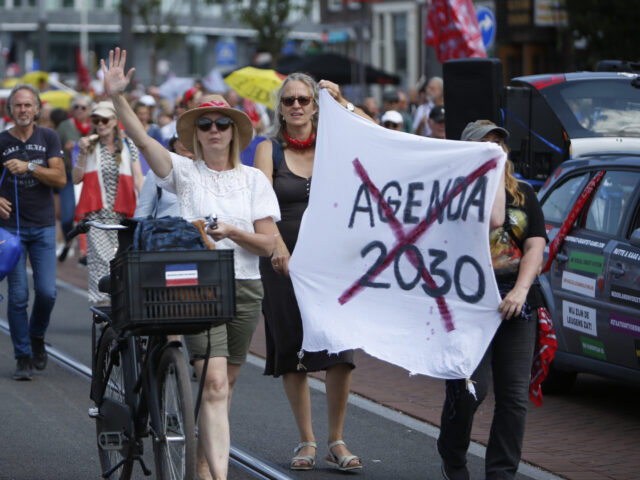The Dutch government said that the timeline for the implementation of draconian climate standards is not up for discussion in the second meeting between the cabinet and representatives of farmers’ organisations on Wednesday.
Prime Minister Mark Rutte’s handpicked “mediator” between the government and the Dutch farmers, former Hague mayor Johan Remkes said that the proposed timeline of cutting nitrogen emissions by 50 per cent by 2030 is not on the table, according to public broadcaster Nederlandse Omroep Stichting (NOS).
This comes despite the leader of the centre-right Christian Democratic Appeal (CDA) party and Deputy Prime Minister Wopke Hoekstra previously declaring that the 2030 deadline was not “sacred”, leading farmers’ representatives to believe that the timeline for the EU-driven agenda would be up for discussion in the meeting on Wednesday.
Bart Kemp of the farmer action group Agractie — which refused to attend the first meeting with the government over the refusal to discuss the timeline — said prior the sit down: “We have to start from the drawing board… It is now up to the cabinet to show that they want to take action and make a start on restoring trust. A game for the stage, we are not falling for that.”
“I get the feeling more and more that talking about the goals and the conditions is just wasting time,” farmer Tineke van den Berg said following the meeting.
The globalist Rutte government has argued that it needs to reduce emmissions of nitrogen, which livestock emit naturally, in order to fullfil requirements for the European Union’s Natura 2000 agenda, which designates vulnerable habitats for both animals and plants that must be protected. The government has said that it will need to cut emissions by 50 per cent by 2030, with some areas needing to be cut by between 70 and 95 per cent, threatening the ability for many farms to remain open.
Meanwhile in Germany, mass farmer tractor protests were staged throughout the country on Wednesday, from Stuttgart to Saxony, with demonstrations against the government’s plan to limit critical pesticides, including organic products, in order to once again fullfill the mandates of the European Union’s Natura 2000 “protected habitat” agenda.
As in the Netherlands, where the nitrogen emissions cap could see up to 30 per cent of livestock farms shut down, farmers in Germany warned that the ban on pesticides could result in many local fruit and vegetable farms shut down, as well as larger agricultural farms, Frankfurter Allgemeine Zeitung reported.
It follows a similar farmers’ protest in Belgium on Monday evening, in which farmers attempted to break into the city hall of Hoogstraten after the local council ignored the overwhelming opinion of the public and signed off on the Flemish government’s plan to impose similar nitrogen emissions standards to The Netherlands.
The collapse of the talks between the Dutch farmers and the government will likely result in further protests, with farmers previously blockading key infrastructure with tractors as well as blocking highways with burning bales of hay and piles of tyres to demonstrate their frustration over the government’s assault on their industry.
Follow Kurt Zindulka on Twitter here @KurtZindulka

COMMENTS
Please let us know if you're having issues with commenting.